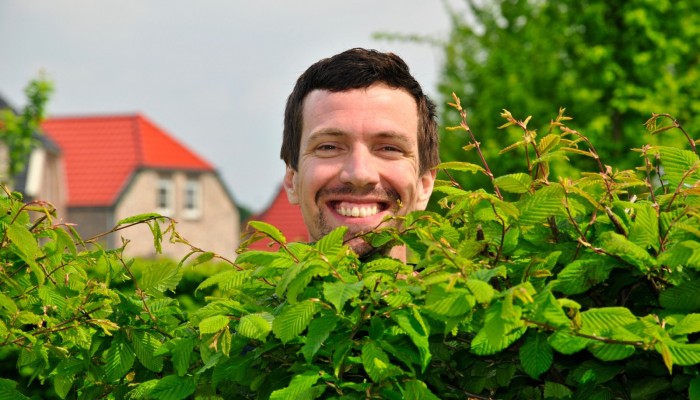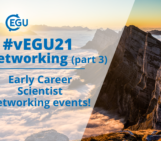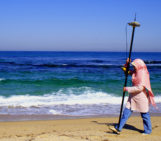
In addition to the usual GeoTalk interviews, were we highlight the work and achievements of early career researchers, over the next few months we’ll be introducing the Division early career scientist representatives (ECS). They are responsible for ensuring that the voice of EGU ECS membership is heard. From organising short courses during the General Assembly, through to running Division Blogs and attending regular ECS representative meetings, their tasks in this role are varied. Their role is entirely voluntary and they are all active members of their research community, so we’ll also be touching on their scientific work during the interview.
Today we are talking to Roelof Rietbroek, ECS representative for the Geodesy Division.
Before we get stuck in, could you introduce yourself and tell us a little more about yourself and your career?
Looking back, I have to admit that I’m not a geodesist by ‘birth’. I originally studied aerospace engineering at the TU Delft in the Netherlands, not so far from The Hague where I was born. Choosing that field study seemed to be a good idea at the time, although it turned out that I found the Earth to be more challenging to study compared to building aircraft. During my Msc I then found myself studying oceanographic (mass) variability with the use of geodetic satellites (i.e. the GRACE mission), and doing a 3-month internship at the oceanographic institute IFREMER in Brest. After graduating, I moved to Berlin and worked with data from the GRACE mission, satellite radar altimetry and a network of permanent GPS stations at the Helmholtz Centre Potsdam GFZ. Since 2010, I work at the university of Bonn at the institute of astronomical, physical and mathematical geodesy. In 2014, I obtained my PhD, and now have a post-doc position (post-docking?). Currently, observed sea level change is the main focal point of my research.
Although we touch upon it in the introduction of this post: what does your role as ECS representative involve?
I really value the regular skype meetings with the ECS-reps from the other divisions. Although this involves a whole bunch of ECS-reps these meetings are relatively low-effort, and are nevertheless surprisingly effective. It enables me to have my say on ECS-issues. From these meetings we gather recommendations which we then propose to the EGU divisions and board. They are very open to our input, and several recommendations have since then been adopted.
Furthermore, I stay in close contact with the geodesy division (deputy) presidents, and they actively involve me in for example the planning and structuring of sessions. Besides that, they gave me the opportunity to have my say on the geodesy division business meeting during the general assembly. As a final remark, I consider it to be my role to write more blog-posts for the geodesy division, although admittedly there is room for improvement there.
Why did you put yourself forward for the role?
In fact, I wasn’t aware of the possibility to become a geodesy ECS-representative, until it was proposed to me. Considering this, I suspect that there are a lot of other ECS out there which are unaware that they can be involved. Initially, I was somewhat afraid that it would take up a lot of additional time, but itturned out that this is not the case. In hindsight, I’m happy that I took the decision to candidate, and I can recommend it to anyone. Under the new definition of an ECS, I may stay ECS-rep somewhat longer, but would happily make room for a new candidate as well.
What is your vision for the EGU ECS Geodesy community and what do you hope to achieve in the time you hold the position?
I would like to see a small team of motivated ECS’s who want to organize some events, and want to increase the visibility of the geodesy division. You can get inspired by looking at the activities of the hydrology division. I think they set a really nice example on what is possible.
What can your ECS Division members expect from the Geodesy Division in the 2016 General Assembly?
Besides our sessions? I’m involved in organizing a short course on presentation feedback again. ECS who want to improve their presentation skills can sign up for a rehearsal where they can take home some tips and tricks.
Maybe we can reverse the question as well? What do I expect from the ECS division members in the 2016 General assembly? That they come and approach me, and express their interests in becoming involved in ECS activities.
How can those wanting to, get involved with the EGU?
It is quite simple really, If you don’t let yourself be heard we don’t know that you’re there. So use your voice, phone, PC: speak to, phone, email and tweet your division presidents and ECS-reps.





Pingback: GeoLog | Get involved: become an early career scientist representative - GeoLog
Pingback: Geodesy | EGU’s Geodesy Division needs a new early career scientist voice
Pingback: GeoLog | Get involved: become an early career scientist representative